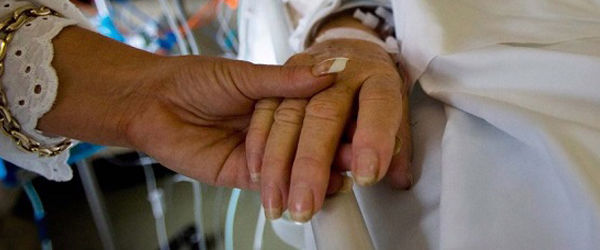Advancing worldwide religious freedom was among concerns shared at an historic meeting of Orthodox bishops with Archbishop José Gomez at the Cathedral Conference Center in Los Angeles June 18.A group of 13 archbishops, bishops and priests from Orthodox dioceses in the western U.S. — including episcopal leaders from Antiochian, Armenian, Armenian Apostolic, Coptic, Greek, Russian, Syriac and Serbian churches — gathered together for the first time to discuss common issues of concern and ways to collaborate.“When we work together, I think we can definitely help the community…a united effort would be more influential,” said Archbishop Hovnan Derderian, from the Armenian Orthodox Church’s U.S. Western Diocese encompassing territory from Hawaii to New Mexico.Archbishop Benjamin, Diocese of the West of the Orthodox Church in America based in San Francisco, shared that pro-life events — such as the annual March for Life in Washington, D.C., where he was “the token Orthodox” last year at the Mass for Life at the National Shrine — provide collaborative opportunities.“It’s certainly something that our church and your church have in common: a common witness to the sanctity of life. It’s one way we can cooperate,” said Archbishop Benjamin.Archbishop Gomez shared two areas of concern for U.S. Roman Catholic bishops: religious freedom and comprehensive immigration reform. As an example of U.S. erosion of religious freedom, he cited the Department of Health and Human Services’ mandate in the Affordable Care Act which forces religious employers such as Catholic hospitals, universities and service organizations to go against their conscience in providing health care insurance plans covering contraceptives. Noting that he had attended a meeting with President Obama in March along with several church leaders from many denominations on the topic of comprehensive immigration reform, Archbishop Gomez said it was beneficial to have ecumenical and interfaith leaders “insist that there should be reform in immigration that really serves all people and respects the dignity of the human person.” Bishop Maxim, Western American Diocese of the Serbian Orthodox Church, proposed the idea of collaborating on an event marking the Edict of Milan, issued in 313 A.D., which ended Christian persecution and permanently established religious tolerance for Christianity within the Roman Empire. “I think that the Edict of Milan, which is celebrated worldwide this year could be a pretext or an opportunity to mark the event on a pan-Christian level here in the United States since the point of this edict is the pursuit of freedom of religion,” said Bishop Maxim.“I think it would be an excellent opportunity,” said Father John Bakas, dean of Saint Sophia Greek Orthodox Cathedral in Los Angeles. “[We could] perhaps use the Edict of Milan and the story behind it to do something in the fall as a joint meeting here and bring Muslim leaders” to discuss ways to advance religious freedom in the Middle East.“I found today’s fellowship hosted by Archbishop Gomez most spiritually empowering,” said Archbishop Derderian. “When I see Christian brothers together, praying together, working together, sharing their thoughts on how to work for the well-being of our community in general — that sends out a very clear message: that as church leaders, as servants of Christ our Lord, we care for our faithful people. This has been a very historic day in the life of our Christian churches.”“From an ecumenical point of view, this meeting demonstrated the progress we are making in our outreach to the Orthodox Churches and they are absolutely open to collaborating with us on endeavors of mutual interests,” said Father Alexei Smith, ecumenical and interreligious officer for the Archdiocese of Los Angeles. “It’s imperative that the Catholic and Orthodox Churches speak with a common voice on these issues in order that our shared viewpoints might have greater credibility.”{gallery width=100 height=100}gallery/2013/0628/orthodox/{/gallery}

